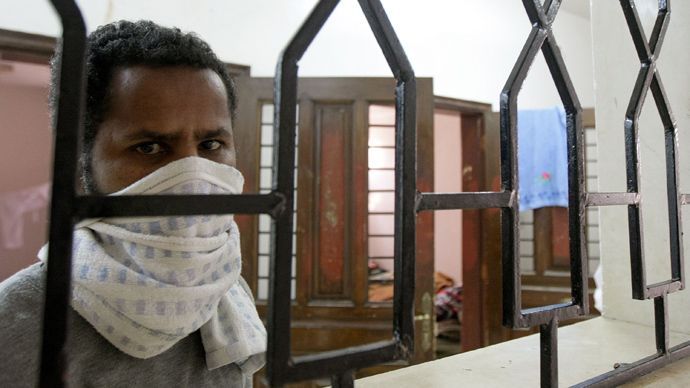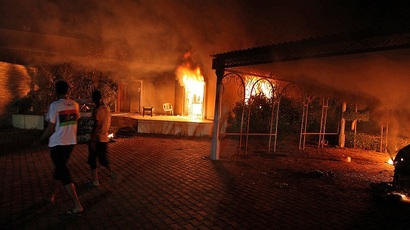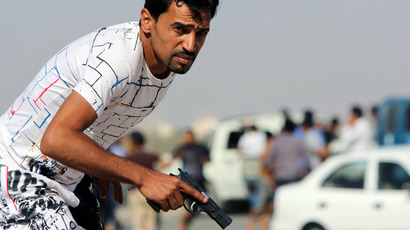Benghazi jailbreak: Over 1,100 prisoners escape in Libya amid protests

Some 1,117 detainees have escaped from a prison in eastern Libya. It comes as hundreds of Libyans protest against the killing of a prominent anti-Brotherhood activist, blaming Islamists for his death.
The mass jailbreak occurred at Koyfiya prison in the eastern city
of Benghazi on Saturday, according to security official Mohammed
Hejazi.
Most of the inmates were being held on serious charges, according to another official, who spoke on condition of anonymity.
Head of security in Benghazi, Mohammed Sharif, told Reuters that some prisoners had turned themselves in and other had been recaptured.
“The prison is back in operation as of this morning. Seventy prisoners were brought in initially. Another 30 were caught in the town of al-Marj and seven in Ajdabiyah,” he said on Sunday.
The escape happened as protesters stormed the offices of Islamist-allied parties in cities throughout the country. It remains unclear whether the jailbreak was part of the protests or if inmates received outside help.
Hundreds took to the streets of Lybian cities overnight to
denounce the killing of prominent political activist and Muslim
Brotherhood critic Abdelsalam Al-Mosmary.
Al-Mosmary was killed by unknown assailants in a drive-by
shooting on Friday as he was leaving a mosque in Benghazi. Two
military officials were also reportedly killed on the same day in
that eastern Libyan city.
Many of the Libyan protesters accused the Brotherhood of being
behind the killings in Benghazi, while Al-Musmari openly opposed
its Islamist political wing, the Justice and Construction Party –
the second-biggest party in the national congress.
Both the Brotherhood and the party rejected the allegations, with
Abdulrahman Al-Dibani of the Justice and Construction Party
saying: “We have strongly condemned the assassination of
Mosmary, and all the Libyan people should hear this and not
openly blame us.”
Human Rights Watch has urged the Libyan government to “conduct
a prompt and thorough investigation” of Al-Musmari’s death,
which is believed to be the first targeted killing of a political
activist since Libya’s “fragile” transitional period
began.
Benghazi’s security situation is among the most precarious in
Libya. Last year, US Ambassador Christopher Stevens and three
other Americans were killed in an attack there.
Meanwhile, more Libyans seem to be growing increasingly
frustrated with the overall country’s unstable political and
security situation following the 2011 overthrow of Muammar
Gaddafi.
“The people were in the streets because they are fed up of all
political parties and how the state has failed,” a
demonstrator protesting in Tripoli told The New York Times,
adding that “maybe the growing opposition to the Muslim
Brotherhood is because they are trying to achieve their political
ambitions using religion as a cover for their agenda.”
Some Libyan protesters have reportedly been using slogans from
the ongoing Egyptian uprising, shouting, “We don’t want the
Brotherhood, we want the army and the police.” In response,
Libya’s top religious figure, Grand Mufti Sheikh Sadeq
Al-Ghariani, has warned against copying Egypt and bringing down
the Libyan government.
In a statement posted on his website, Al-Ghariani blamed
unspecified political parties for “trying to create crises in
electricity and gas, and those taking advantage of tribal
loyalties to the ousted dictator Muammar Gaddafi.”














